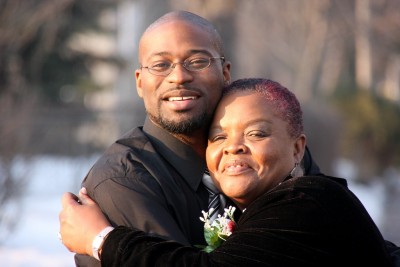In 1993, a teenager named Oshea Israel shot and killed 20-year-old Laramiun Byrd at a party both were attending in Minneapolis. Israel was sentenced to 25 years behind bars for second-degree murder, while the mother of the victim was sentenced to life without her only child.
As Byrd’s mother, Mary Johnson, looked at her son’s killer in the courtroom, she struggled with feelings of anger and resentment. However, Johnson’s faith compelled her to forgive, so she told the young man that she forgave him, even as she struggled with the bitterness inside.
Still, the anger failed to subside. After many years of fighting her emotions, Johnson made the fateful decision to reach out to Israel, arranging a meeting at the Minnesota Correctional Facility in Stillwater.
“I don’t know you and you don’t know me,” Johnson recalls saying. “You didn’t know my son and he didn’t know you, so we need to lay down a foundation and get to know one another.”
The conversation that ensued proved cathartic for both Israel and Johnson. They talked about Johnson’s son. Israel acknowledged what he had done, and asked through tears for Johnson’s forgiveness. He also asked her for a hug.
When the meeting concluded, and Israel had returned to his cell, Johnson reflected in awe about what had just happened. “I just hugged the man that murdered my son,” she said to herself. “And I instantly knew that all anger and animosity, all the stuff I had in my heart for 12 years … was over.”
Fast forward to today. Israel was released from prison in 2010, and has become very close to the mother of the man he killed. Johnson describes Israel as her “spiritual son,” and looks forward to seeing him graduate from college and potentially get married—two things she never got to see her biological son do. In January, Johnson got married, with Israel walking her down the aisle.

Oshea Israel and Mary Johnson (Photo by Brian Mogren)
But the closeness between Johnson and Israel is more than just emotional and spiritual—it’s also geographical. With Johnson’s approval, Israel moved into the apartment immediately adjacent to hers.
“We actually bump into each other all the time, leaving in and out of the house,” Israel says in an interview with National Public Radio. “And our conversations, they come from, ‘Boy, how come you ain’t called over here to check on me in a couple of days? You ain’t even asked me if I need my garbage to go out.’ I find those things funny because this is a relationship with a mother for real.”
In 2005, Johnson founded From Death to Life, a non-profit group committed to promoting healing through forgiveness for those who have been impacted by violent crime. Israel often joins his “spiritual mother” to share their story of reconciliation.
For all the tools available to bring about transformation in the lives of prisoners, as well as the lives of those who have suffered the impact of crime and incarceration, none is more powerful than forgiveness. Forgiveness frees both the one forgiven and the one forgiving from the bondage of the past, and allows both to move forward, reconciling to one another, and serving as a model to others trapped in past sins.
Prison Fellowship’s Prayer Team is committed to bringing about restoration for those affected by crime. By lifting up specific requests offered by prisoners and their families, we can be a part of God’s work of forgiveness and healing. To learn how you can join men and women around the world in prayer for those in need, visit our prayer team page.